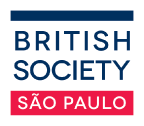The Albert Schweitzer Hospital Compound during the Nigeria-Biafra War
/William Moffitt Harris - Part 15
The Nigerian-Biafra War lasted from May 1967 to January 1970, during which coexisted the Republic of Biafra unilaterally declared by a military coup of an ethnic religious nature (not recognized by Nigeria as being so) headed by Lieutenant Colonel Chukumeka Odumegwu Ojukwu.
One of the biggest manhunts known after the Second World War was proclaimed and Lt Colonel Ojukwu, the Igbo leader who had declared secession from Nigeria, managed to escape on Jan 5th 1970 to neighboring Ivory Coast where Christian missionaries granted him asylum. A week later, Biafra Chief Army Staff Major General Phillip Effiony surrendered to the Nigerian Government. Colonel Yabuku Gowon accepted Biafra’s unconditional surrender and promised a Reconciliation, Reconstruction and Rehabilitation Program envisaging neither victors or vanquished in the hopes of reuniting the three distinct ethnic belligerent groups, the Christian Igbos who predominated in the East and Central Nigeria, the Muslim Hausas from the underdeveloped North and Yorubas from the West, but as nowadays the then tribal ethnic misunderstanding still kept going on. Gowon himself was of a Christian upbringing and preferred not to interfere with the mass killings. International press agents and social workers sent out many controversial reports as to how many Igbos and their Animist allies died (two to five million) during the seven months siege.
During this War Rhena Schweitzer led a relief effort for Biafran Igbo refugee children, having taken almost two hundred of them into one of the remaining buildings of the hospital premises during the 1963 savagery. There were so many children that she had to remove twenty beds into her own home 300 meters away on the other side of the hill, lodging two of them to each bed. She supervised the elder adolescent children in the care of the babies and smaller children. Many donations came in from local families in the way of nappies, mattresses and foodstuffs, besides villagers coming in to help with the cooking, washing and general cleaning up.
Official United States Government Department of State records, mention up to two million Igbos and Animists were eliminated, there remaining less than a quarter million during a siege blockading entrance of food supplies, causing famine and water borne diseases as cholera and typhoid fever. The whole world was shocked by the images shown on television. Biafra government reported that Nigeria was using genocide and hunger to win the war. Many movements led by Catholic and Protestant churches sent foodstuffs by ship, zeppelins and by plane. The plight of the starving Biafrans became a famous issue in foreign countries enabling a significant rise in the funding by nongovernmental organizations. Several governments and institutes were forced by public opinion to collaborate in the International help. A Canadian pilot showed the six volunteer pilots taking foods into Biafra and how packages tied together in another bigger sack filled with gas could be dropped from a short height without damaging the cans and packets contained inside. Risking their lives, because Nigerian gunners were savagely devoid of warring ethics, the volunteer pilots saved thousands of lives specially those of children kept in schools, convents and monasteries in towns far from the coast.


